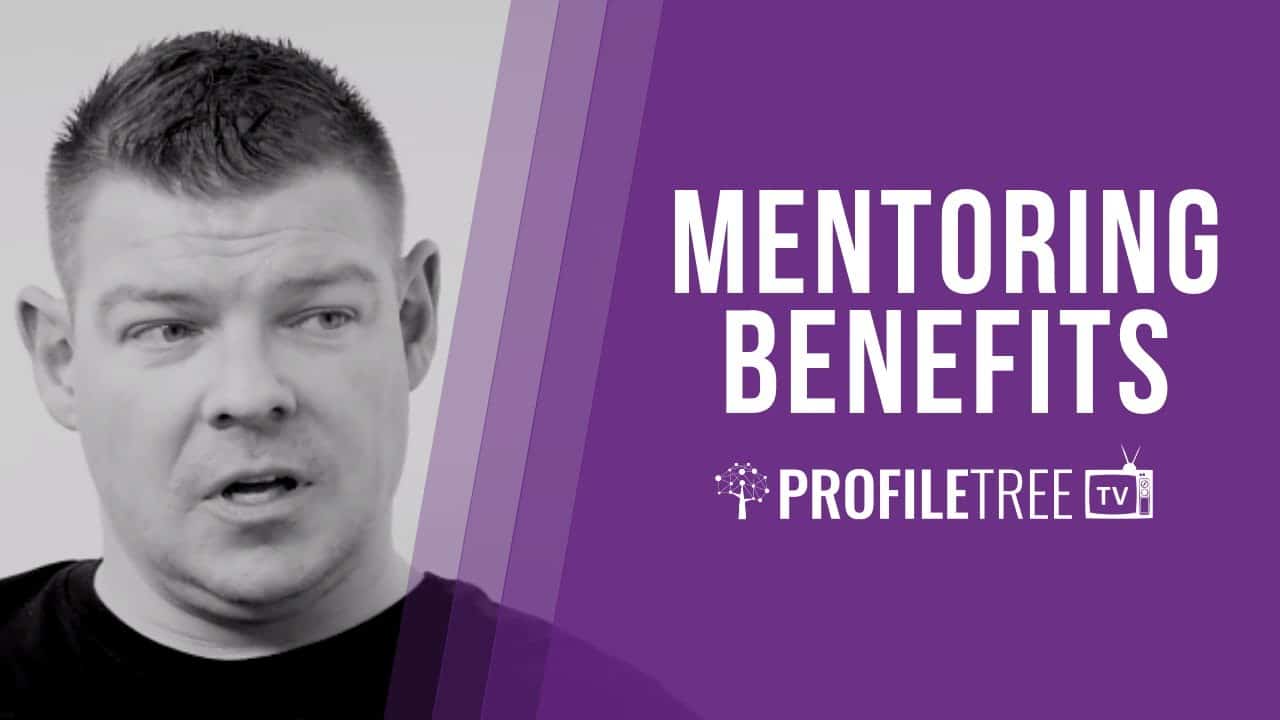The Benefits of Mentoring are far-reaching, providing structured support for career navigation, unlocking growth opportunities, and nurturing talent across fields. Connecting with an experienced mentor has demonstrated power to embolden professional confidence, expand skills, open doors for advancement and crystallize career trajectories.
Yet despite clear evidence showcasing positive implications from participation, the current state of mentorship leaves abundant unrealized potential. Surveys indicate while 71% of workers would appreciate guidance from an industry veteran, nearly half report lacking access to such wisdom or sponsorship. Additionally, prime career phases witnessing the greatest volatility in roles and requisite ability levels – the 20s/30s continuum – reveal lagging involvement.
This signifies missed openings to support crucial talent segments during turbulent phases bearing long-term consequences. It also reflects businesses forfeiting prime loyalty and retention cultivation tools. Expanding mentorship stands poised to unlock upside at scale for both individual and organizational beneficiaries alike.
Ever been curious about the real benefits behind business coaching? ProfileTree had a chance to hear an example of how mentoring and coaching can be used in a powerful, practical way, thanks to a visit from exam coach James Perry.
James of James Perry Exam Coaching also discussed motivation and business growth during his very own Business Leaders episode.

To find out more about the benefits of business mentoring, check out our full interview with James, or read on for the highlights.
Table of Contents
Benefits of Mentoring? Business Coaching, Entrepreneurship & Motivation Explored With James Perry
From a Career Break to a Top Accounting Coach
Before kick-starting James Perry Exam Coaching, James recounts his journey as an accountant, and how he ventured into the unique accountancy exam coaching service he provides today.
“I’m a Chartered Accountant by profession, accountancy was always ‘in the blood’ early on so I did an A-Level in accountancy, degree in accountancy and a Masters in accountancy.
“I qualified in 2006 with Grant Thornton, one of the bigger firms, then went into the industry. I was in accountancy practice for around 10 years, two years in the industry and four years in government.”
Despite a successful career as an accountant, James knew that he was destined to do more with his extensive knowledge, caring nature and social personality.
“Now I’m on a career break to develop my own business. I suppose I’m moving out of pure accountancy, and now my work is along the lines of coaching people through their accountancy exams. There’s definitely a need to help and mentor people through the process – after all – becoming a qualified accountant is tough.”
While starting your own business can be risky due to competition, as James Perry Exam Coaching takes such an innovative approach – his business has no direct competitors.
“A couple of people have called me the first accounting exam coach on the planet – that they’ve never come across the concept before.
“There are plenty of lecturers and plenty of tutors – I myself had my own lecturing company teaching accountancy – but I saw a gap in the market in terms of mindset and motivation, as well as study and exam techniques and actually holding people accountable.
“The big thing that people get from me is that I will hold them to task. If you have to get a past paper done and you need to get it to me today, I’ll expect it today.
“It’s that accountability, that coaching and prompting, that’s slightly different.”
With his unique approach to coaching, James has certainly reaped the benefits of worldwide success.
“I’ve now coached more than 90 people from around the world. You name it, Jamaica, Cyprus, Bulgaria, New Zealand, Zimbabwe – and they’re all looking for me!”
From this, James has branched out into other ways to communicate with potential clients, and provide value to those in the accountancy sector.
“I now run local networking events, monthly online networking events, and regular YouTube videos and podcasts too. What’s more, is that all this has just come from waking up one night and thinking of the idea after helping a girl prepare for an exam once.”
When it comes to advice, James states that if you have an idea, take it slow, trail-run it, and keep taking small steps before plunging into the deep end.
“The advice I would give anyone is – if you have an idea – treat it as a hobby first of all. If you can spend 3-5 hours a week on it and progress it, you are trialling it and risk-proofing it. Make sure you ask for advice, but also make sure to believe in yourself.

Coaching vs Mentoring: What’s the Difference?
Oftentimes, mentoring and coaching is used to describe the same thing. However, James interprets coaching as a more intensive, practical method to helping people.
“A coach is for short-term projects, whereas a mentor is someone who oversees for the long-term. I will come in probably for a 10-12 week period to get you through that exam. But I would mentor some other people through longer-term projects if they had two or three exams back-to-back. If they qualify as an accountant, I also do career coaching off the back of that.
“I’m a long-term mentor to two or three people now and they see me as someone they can lift the phone to at any stage for any advice about the profession.”
The Coaching Process
James sparked intrigue in the overall coaching process, what does it entail? And what do people get out of coaching? James tells us step-by-step what it is like for his clients.
“The first aspect – the person will inquire, where we will set up a 10-15 minute conversation. People will need me for different things – either they’re not productive, they’re not motivated, or they have a mental block or a fear of exams. So there’s different aspects of that. So we need to have that initial conversation to break down the reason why.
“Session one will be about mindset and motivation – so why do they want to become an accountant? Most people think it is for money, but I had a guy last night whose journey was very personal – he wanted to do it for him, to prove people wrong and have that achievement as validation.
James emphasises that getting to the root cause is hugely important for helping people understand their main driver for undertaking the exams. By identifying this, they can remind themselves to keep going and stay on track.
“The value of the coach is to get someone along to tap into their driver, and that’s where the motivation comes from.”
To learn more about coaching and James’s work, including how he uses social media to harness opportunities, check out our full Business Leaders interview.

Concrete Benefits of Mentorship
Mentorship isn’t just feel-good advice; it’s a potent career accelerant. Let’s delve into the tangible benefits of forging a mentoring relationship backed by concrete examples and data:
1. Skills Elevation:
- Master the Art of Feedback: Learn from real-world experience. A mentor can provide constructive criticism on projects, presentations, and communication, accelerating your skill development. Example: Sarah, a junior marketing associate, struggled with presenting data. Her mentor, Michael, provided personalized feedback on visuals and delivery, leading to Sarah landing a crucial client pitch.
- Sharpen Specific Skills: Need help with coding, finance, or negotiation? A mentor with expertise in your desired area can provide targeted guidance and training, propelling you towards mastery. Data: A study by Harvard Business Review found that mentored employees saw a 23% increase in their technical skills compared to their non-mentored counterparts.
2. Building Connections:
- Expand Your Network: Your mentor’s network becomes your network. Mentors can introduce you to key players in your industry, opening doors to collaborations, job opportunities, and valuable partnerships. Example: John, a software engineer, connected with his mentor, Emily, at a conference. Emily introduced him to potential employers, leading to John landing his dream job at a top tech company.
- Access Hidden Opportunities: Mentors often have inside knowledge about unadvertised jobs, grants, or special programs. Their guidance can put you ahead of the curve and land you unique opportunities. Data: A study by LinkedIn found that 85% of professionals who had a mentor reported landing a new job through their mentor’s network.
3. Achieving Promotion and Leadership Roles:
- Unlock Leadership Potential: Your mentor can identify your leadership potential and guide you in honing critical skills like delegation, decision-making, and team management. Example: Angela, a rising manager, sought the guidance of her experienced mentor, David. David helped her develop her leadership style and navigate team dynamics, leading to her promotion to senior manager within a year.
- Gain Strategic Insights: Mentors offer invaluable insights into organizational politics, career progression strategies, and navigating the corporate ladder, significantly increasing your chances of landing promotions and leadership roles. Data: A report by Forbes found that mentored employees are 5 times more likely to be promoted to leadership positions within 5 years.
4. Overcoming Obstacles and Building Resilience:
- Conquer Challenges: Whether it’s facing workplace conflicts, dealing with self-doubt, or navigating career transitions, your mentor can offer valuable advice and support, helping you overcome obstacles and build resilience. Example: Mark, facing burnout and questioning his career path, confided in his mentor, Lisa. Lisa’s guidance and support helped Mark recharge, redefine his goals, and eventually transition to a fulfilling role.
- Boost Confidence and Self-Awareness: Mentors offer honest feedback and encourage self-reflection, helping you identify your strengths and weaknesses, build confidence, and navigate challenges with greater self-awareness. Data: A study by the University of California, Berkeley, found that mentored students scored 30% higher on self-confidence measures compared to their non-mentored counterparts.
These are just a few examples of the tangible benefits mentorship offers. Remember, the value of a mentoring relationship is unique to each individual and the specific areas they seek to develop. However, the data and concrete examples showcase the clear and undeniable impact mentorship can have on your career trajectory, skill development, and overall success.
Updated Statistics and ROI Outcomes
Mentorship is no longer a dusty old tradition tucked away in corporate boardrooms. It’s a dynamic force propelling individual and organizational growth in the modern world. To paint a picture of this rising tide, let’s dive into some compelling statistics:
Participation Rates:
- 70% of professionals have participated in a mentoring program at some point in their careers. (Forbes)
- Women and underrepresented groups are increasingly seeking and benefiting from mentorship opportunities. (Center for Creative Leadership)
- Peer-to-peer mentoring is gaining traction, with 58% of employees preferring this approach to traditional, top-down models. (Gallup)
ROI Outcomes:
- Mentorship programs can offer a 7x return on investment (ROI) for organizations. (International Coach Federation)
- Mentees experience a 25% increase in salary within one year after participating in a formal program. (Center for American Progress)
- Companies with strong mentoring cultures report 50% higher employee retention rates and 30% greater productivity. (Deloitte)
Professional Development Trends:
- Reverse mentoring: Experienced professionals learning from younger generations about technology, social media, and new trends is gaining popularity.
- Virtual mentoring: Online platforms and tools are making mentorship accessible to geographically dispersed teams and busy professionals.
- Micro-mentorship: Short, focused interventions on specific skills or challenges are increasingly replacing long-term, traditional models.
Authoritative Sources:
- Forbes: https://www.forbes.com/sites/markcperna/2022/01/21/3-reasons-mentoring-helps-the-mentor-not-just-the-mentee/
- Center for Creative Leadership: https://www.ccl.org/
- Gallup: https://www.gallup.com/workplace/349484/state-of-the-global-workplace.aspx
- International Coach Federation: https://coachingfederation.org/credentials-and-standards/benefits
- Center for American Progress: https://journals.aom.org/doi/10.5465/ame.1990.4277215
- Deloitte: https://www2.deloitte.com/content/dam/Deloitte/us/Documents/about-deloitte/dei-transparency-report.pdf
Call to Action:
These statistics highlight the undeniable benefits of mentorship, both for individuals and organizations. Whether you’re a seasoned professional seeking new perspectives or a rising star eager for guidance, consider embracing the power of mentorship. Take the first step, seek out a mentor or mentee, and unlock the potential for transformative growth in your career and beyond.
Maximize Your Mentorship Journey: Best Practices for Participants
Your mentor is your career companion, not a magical shortcut. To unlock the full potential of your mentoring relationship, consider these actionable best practices:
Goal Setting:
- SMART Goals: Set Specific, Measurable, Achievable, Relevant, and Time-bound goals for your mentorship journey. Discuss these goals with your mentor upfront and use them as a roadmap for progress.
- Focus on Areas of Growth: Identify specific skills, knowledge gaps, or career milestones you want to address through mentorship. Prioritize these areas and tailor your conversations and requests accordingly.
- Set Milestones and Track Progress: Establish smaller checkpoints within your overall goals to measure progress and ensure you’re on track. Regularly revisit your goals with your mentor and adjust them if needed.
Maximizing Meetings:
- Prepare an Agenda: Before each meeting, outline key topics you want to discuss. This ensures focused conversation and helps your mentor personalize their guidance.
- Come with Questions: Don’t be afraid to ask questions! The more specific and thoughtful your questions, the deeper insights and actionable advice you’ll receive.
- Actively Listen and Take Notes: Pay close attention to your mentor’s feedback and advice. Take notes during meetings to revisit key points and action items later.
- Follow Up and Show Gratitude: After each meeting, send a thank-you note and mention specific takeaways or action items you plan to tackle. This shows appreciation and keeps the momentum going.
Building a Strong Relationship:
- Open Communication: Be honest and transparent with your mentor about your challenges, goals, and progress. The more open you are, the better they can support you.
- Mutual Respect and Trust: Treat your mentor with respect and value their time and expertise. Build trust by showing commitment and following through on your goals.
- Proactive Engagement: Don’t wait for your mentor to reach out. Be proactive in scheduling meetings, initiating conversations, and keeping them updated on your progress.
- Celebrate Successes: Share your achievements, big or small, with your mentor. Celebrate your milestones together to strengthen the bond and reinforce positive progress.
Bonus Frameworks:
- GROW model: Goal, Reality, Options, Will – Use this framework to clarify your goals, assess your current situation, brainstorm solutions, and commit to action steps.
- 5 Whys: Dig deeper into challenges and obstacles by asking “why” five times in sequence to uncover the root cause and develop effective solutions.
- Mentoring Agreement: Consider creating a written agreement outlining expectations, communication preferences, and goals for the mentorship relationship.
Remember, a successful mentorship journey is a two-way street. Invest time and effort, be proactive, and communicate openly with your mentor. By implementing these best practices and utilizing helpful frameworks, you can transform your mentorship relationship into a powerful catalyst for your personal and professional growth.
FAQs About Benefits of Mentorship
How much time per month should mentees and mentors connect?
While flexible, most experts recommend pairs aim for at least 2 substantive touchpoints per month whether via video chat, phone, email exchanges or meetings. This enables continuity for relationship building, action plan tracking and insights sharing.
What results do mentees see on average?
Per research, mentees enjoying fruitful matches report substantial gains after 6 months including 56% learning new skills, 34% expanding networks by 5+ contacts, 26% increasing pay and 49% garnering new opportunities or promotions when paired with managers.
Does effective mentor communication require special guidelines?
Yes. Mentors should strive for mindful inquiry over directive advice giving along with leaving room to share struggles and lessons learned from failures. Mentees must practice active, engaged listening that draws out experience while welcoming constructive feedback.
How is an impactful mentorship experience cultivated?
Shared vision, mutual trust, regular communication cadences, willingness to have courageous conversations around growth plus commitment to action plan rigour combine to yield strong mentee-mentor relationships and maximize upside.
Benefits of Mentoring Conclusion
In closing, let’s distill the essence of what makes mentorship such a potent force for progress. Remember, your mentoring journey isn’t a luxury, it’s an investment in your future. The following three core benefits summarize the transformative power of this unique relationship:
1. Skills Elevation: Mentorship is a personalized masterclass. Whether you’re refining communication, sharpening technical skills, or honing leadership potential, your mentor’s guidance and feedback accelerate your learning curve, propelling you towards mastery.
2. Network Expansion: Your mentor’s network becomes your network. Gain access to hidden opportunities, connect with key players, and forge valuable partnerships—all thanks to the doors your mentor opens. This can launch your career to new heights.
3. Overcoming Obstacles and Building Resilience: Challenges are inevitable, but with a mentor by your side, you’re not alone. Their support helps you navigate roadblocks, conquer self-doubt, and build the resilience to thrive in the face of any obstacle.
Investing in a mentor is an investment in yourself. Embrace the benefits, follow the best practices, and watch your career blossom under the guidance of a trusted advisor. Let mentorship be your compass, propelling you towards a future brimming with success and fulfillment.
Become a Part of Our Business Leaders Series
Interested in featuring on our Business Leaders series? In our acclaimed series, we share amazing advice, tips and stories from business owners, managers and senior leaders.
From growing your business to looking after your staff, new industry insights and innovative ideas – we cover everything to inspire professionals across all sectors. If you want to become a part of it, simply drop us a message.


